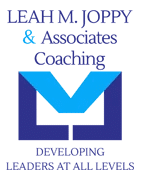Think about it: how likely are you to take someone’s “advice” when they’re essentially telling you what to do? Are you more likely to act on an idea if you’ve come up with it on your own and feel that it’s YOUR decision?
For most people,asking for advice sounds more appealing. The difference comes down to “asking for advice” versus “telling you what to do.” Often, they both seek to accomplish the same thing, but the methods and results can differ dramatically.
We don’t often think about the differences between asking and telling and the effects of both. When you ask someone to do something, you’re creating a dialogue. However, telling someone what do to is a monologue. Here’s a further breakdown of the differences:
Telling You What To Do:
- Controls the information
- Doesn’t engage the other person in the decision making process
- Keeps you in the role of the ‘knowledgeable person’
- Makes people reliant on you for advice or information
Asking For Advice:
- Empowers others
- Encourages decision making
- Engages people in the thought process
- Encourages people to be less reliant on your “expertise”
We experience “asking” versus “telling” in so many areas of our lives: work, home and relationships with family and friends. One area where asking for permission is so vital is during the coaching process. People often work with coaches because they’re ready to make meaningful change and approach life with a new and fresh way of thinking. This type of change is only going to be sustainable if a person comes up with ideas and perspectives on their own terms.
Many people feel a little nervous when they start working with a coach. After all, you’re delving into the most personal of territories: your life. You’re bearing your soul about what’s working and what you’d like to do differently. You’re there with the goal of making changes, but change can make you feel vulnerable. All of these feelings are completely natural. That’s why it’s so important that the coaching relationship is participant-driven and you’re in the driver’s seat. It sets a collaborative tone and uncovers tools for success in the future.
When we reflect on the biggest changes we’ve made in our lives, most likely they’ve happened because we’ve made decisions and come to conclusions on our own terms. Advice or the unpopular “you should do this” method is rarely helpful. If you’re looking for coaching where you’re in charge, Leah M Joppy and Associates is ready to help. Call us at 301-670-0051 or email info@lmja.com to learn more.

